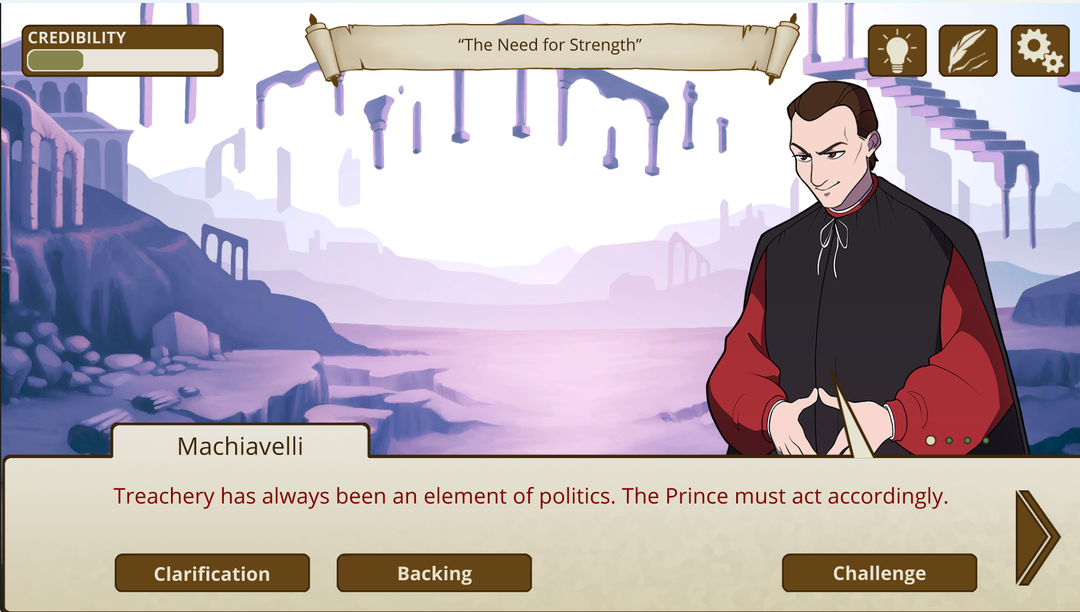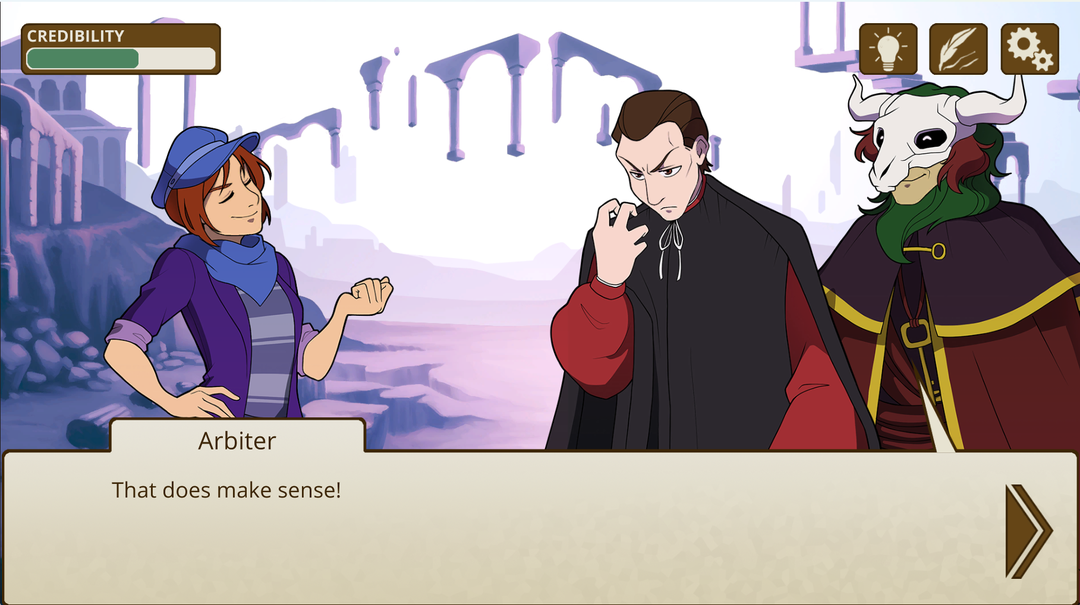First published on Kongregate in 2013, Socrates Jones: Pro Philosopher broke onto the scene to provide a fun crash course on moral philosophy. I played it and enjoyed it: it was strange and quirky and unique, but something you had to seek out to find. Now a decade later, I'm surprised as anyone to be talking about a sequel that's going to dive back into everyone’s favorite topic.

Okay, maybe only this guy’s favorite.
Joking aside, Pro Philosopher was an interesting game where the titular character and his daughter Ariadne explore several schools of moral philosophy and figure out their strengths and contradictions in a quest to find the truth about morality and save his own life (Which wouldn’t be a problem if he just had some deer repellent, but you can learn more about that in the original game that's still free on steam). It was made by Connor Fallon along with several students and faculty from Carnegie Mellon University to help teach not only philosophy, but how to use critical thinking and the Socratic method in arguments. The premise is certainly unique!
Now they’re back with a new tale of philosophical debate and mystery as Ariadne maneuvers the political landscape in Pro Philosopher 2: Governments and Grievances which releases later this year. While we only have the demo right now, it’s proving to have the same charm and fun as the original, and I thought it would be a good idea to highlight a game with such a unique take before its full release.
The Rules of Engagement
The Pro Philosopher now series has clear inspiration from the Ace Attorney series, and that’s by design. In a post on IndieGames.com, Connor Fallon talked about how much he loved the games and how he thought the format would translate well to philosophical discussion. So in the style of Ace Attorney, Pro Philosopher takes the form of a light novel where you question philosophers and present counterarguments to unravel their points.

The lightbulb replaces your Court Record, letting you review the ideas you can challenge your opponent with. Also, you'll find yourself working alongside famous historical figures.
Because of this, anyone who has played the Ace Attorney games will feel right at home playing Pro Philosopher 2. The demo has you locked in a battle wits against potentially-misunderstood intellectual monster, Niccolo Machiavelli, author of the “The Prince.” Machiavelli will present his case like a witness presents testimony, and then you have your chance to questions him. You’ll receive “evidence” in the form of mutually agreed upon ideas and you of course have a “penalty” bar to show how credible your stance still is. You have three options to help you make your case: Asking for clarification on a statement, asking for what evidence they have to back their statement, and challenging their statement with the ideas you’ve agreed upon (You will also have the option to question the relevance of a statement once the game comes out).
And you know what? It works! I love how well the Ace Attorney formula applies to philosophical debate. The ideas and tools they give you really help you figure out critical skills you need to win your arguments, and the dialogue helps you figure out early on what statements require further analysis and which can be accepted as they are. There’s even an option to make a personal attack on your opponent's body odor, which never helps and always lowers your credibility... Which is exactly the point! It’s to show that an ad hominem attack doesn’t help in a debate that's trying strictly to be about ideas.
Now there is an obvious flaw here in that in the style of video games: there is a clear “winner” and “loser” in these debates, which is not quite how philosophy works. The choice to go with clear, singular solutions and easy to use mechanics does help with building debate skills and evaluating arguments though, so I think it makes sense from a design perspective.

Yes, you do get that satisfying “objection” moment in these games too.
This Concludes Opening Arguments
With a firm baseline established, I’m more than ready to jump into the next entertaining and educational adventure in this series. It’s fun, educational, and provides the building blocks to more insightful and meaningful debates. Anyone interested in philosophy or a good Pheonix Wright experience will get a kick out of this game. And while the actual Pro Philosopher 2 won’t be available until October 8th, 2024, Socrates Jones: Pro Philosopher is available now on Steam to get you started, as well as this demo. It's a great chance to try out a game that's attempting something very different, all while balancing entertainment alongside education.
Did I mention it’s free? I don’t think you need any further argument to give it a try!
Guest Writer
At a time when most people have their lives together, James has games to fill that void. He’s more than happy to play any board game you put in front of him, especially if they’re card games. When it comes to video games, he’ll tackle any platformer, racing game, puzzle solver, or rhythm game you got. If you really want to make him happy though, talk roleplaying games; the kind where you sit at a table and roll dice, where you have a whole world to explore, where choices matter and secrets abound. There’s always a story to tell and he’s more than happy to experience it!
At a time when most people have their lives together, James has games to fill that void. He’s more than happy to play any board game you put in front of him, especially if they’re card games. When it comes to video games, he’ll tackle any platformer, racing game, puzzle solver, or rhythm game you got. If you really want to make him happy though, talk roleplaying games; the kind where you sit at a table and roll dice, where you have a whole world to explore, where choices matter and secrets abound. There’s always a story to tell and he’s more than happy to experience it!